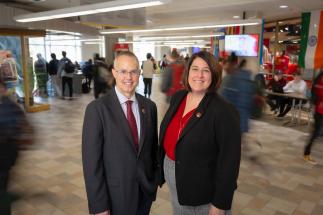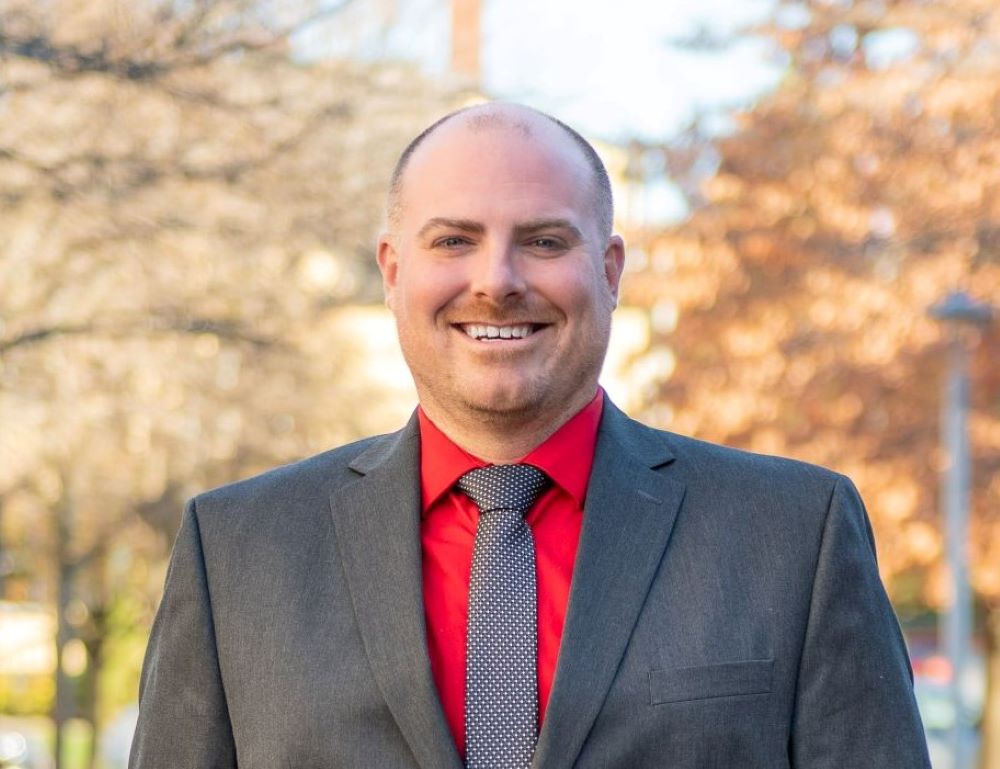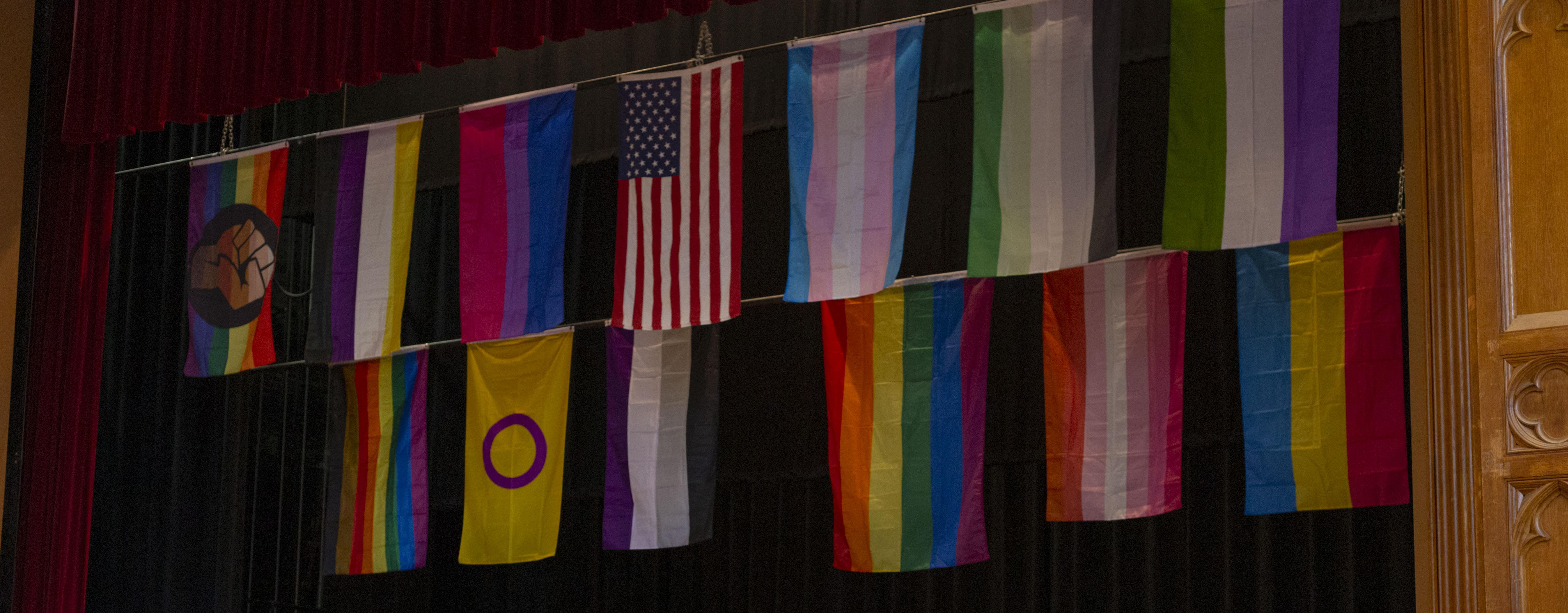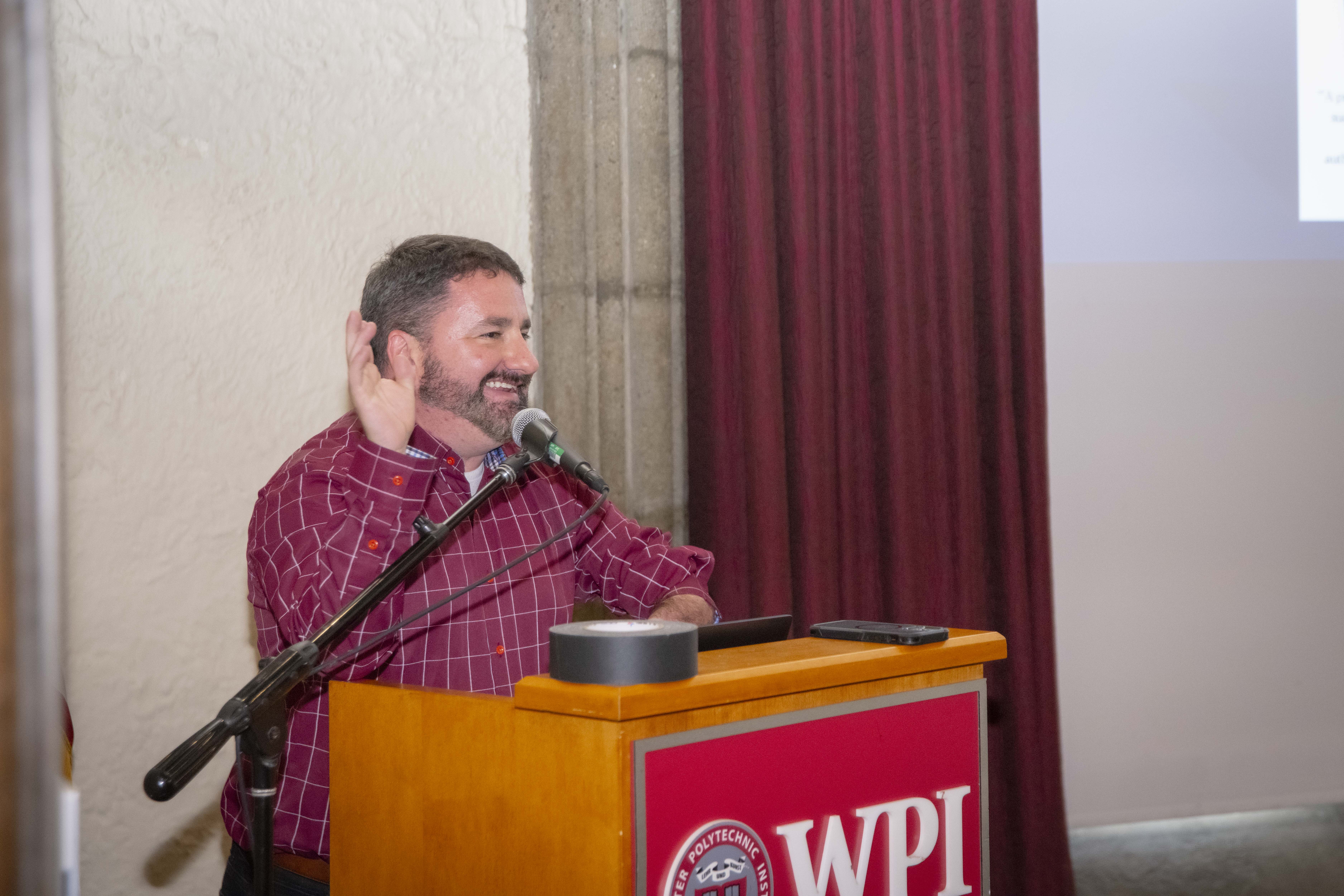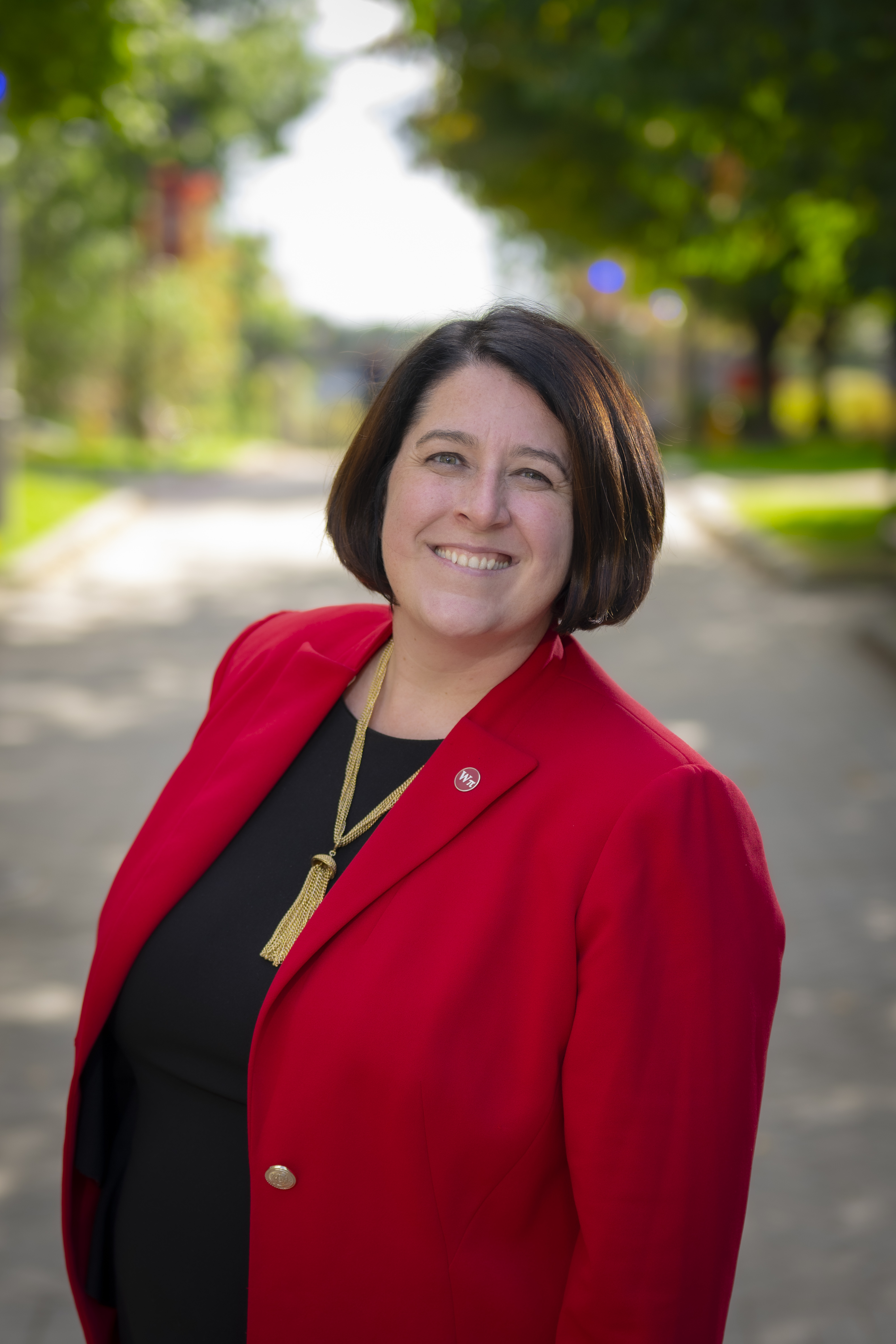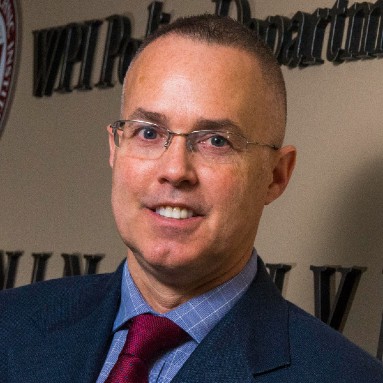We sat down with Emily Perlow, Dean of Students, and Steve Marsh, Chief of Police, to discuss their perspectives on how global events, debate, and language impact students and our campus community. Dean Perlow, who has been with WPI for 18 years, and Chief Marsh, who joined the community in 2018 after a long career with the Massachusetts State Police, both play integral roles in the life of the WPI community.
Q: How has the war in the Middle East affected our campus community?
Dean Perlow: The situation in the Middle East is devastating, and even though that war might seem a world away, there are members of our community feeling deep impacts. Many students, faculty, and staff are worrying about their loved ones and suffering the loss of a sense of peace and safety in the overall national and global climate. We’re reaching out to students to offer support, and we’re also seeing the kind of empathy and care that naturally occurs on our campus. People here are genuinely concerned for each other.
Being connected matters even more in times like these, especially for those who have family and friends far away. For all of us, it’s important to continue the conversation we’ve been having about inclusion, belonging, and respect for one another’s thoughts, faith, culture, experience, and viewpoints. Since the conflict began, I’ve been having some really thoughtful discussions with students about the importance of and challenges associated with language choice and how divisive speech can drown out the open, respectful, and inclusive dialogues we should be having, especially as we grapple with uncomfortable and difficult topics and work to form our own thoughts and opinions.
Q: We’re seeing tension and clashes on other college campuses across the country. How can we help keep our campus safe?
Chief Marsh: Through our networks with federal, state, and local police—and through our partnerships with the Dean of Students Office and other campus partners—we monitor the landscape and external activities and trends that may cause safety concerns to our community members. And we think about how global, national, or regional issues might manifest on our own campus. Our police officers are accredited and trained in such areas as community support, bias investigation, and de-escalation, and we’re attuned to our students, faculty, and staff.
At the same time, we need everyone in the community to be aware. We’re constantly working to reinforce that need by reminding folks on campus that, if they see something suspicious or potentially dangerous, they should say something—either by calling Campus Police at 508-831-5555 or, if there’s an emergency off campus, by dialing 911. I also encourage people to fill out the Bias Response Form if they see or experience bias-related issues.
Q: A group of students held a demonstration at the fountain last week; can you tell us about it?
Dean Perlow: Yes, some students held a silent demonstration on campus to share their views about the Israel/Gaza conflict and their support of Palestinians, holding up signs and lying down on the ground around the campus fountain. Student organizers facilitated the event to adhere with WPI policies and guidelines. I was on hand, as were other student leaders and administrators, as well as Campus Police. All told, there were about 40 students participating. To our knowledge, there were no incidents at the event.
Chief Marsh: Because of what we’ve seen occurring on and near other college campuses, including demonstrations turning into clashes, our team worked with the Dean of Students Office and the students organizing this event to provide security—visible and not visible—and with collaboration of external agencies, should they be needed. WPI is fortunate to have an active emergency management program and close relationships with partners across campus and with other law enforcement agencies, so we can monitor any campus activity and quickly intervene to support our community and stabilize or de-escalate situations as needed.
Q: Words have power and can be used to help or to hurt. What advice do you have for our community?
Dean Perlow. Words truly do matter—what you say, how you say it, what you mean by it, and how it’s perceived can be very fraught in times like these, particularly when groups of people assign different meaning to words or phrases.
An important example, and one I’ve discussed with students, is the slogan “from the river to the sea” which was used in the student-led demonstration. The slogan has very different meanings to individual members of the community, both historically and culturally. While it’s not clear whether offense was intended, it was perceived as hurtful and offensive by some members of the community, which underscores how critical it is for us all to reflect carefully on the impact of the words we choose.
[Editor’s note: WPI’s Diversity, Equity, Inclusion, and Belonging (DEIB) team recently held a session called The Power of Inclusive Language to help faculty and staff understand nuances of some phrases, with another session scheduled for December 4, 2023.]
Chief Marsh: Like all universities, WPI has an obligation to make space for safe and open dialogue; we support free speech and peaceful discourse, even when people disagree. Our campus police are here to support the safety of our community members in the rare situation when disagreement and debate have the potential to become acts of criminal behavior or violence.
The bottom line, however, is that we expect every member of our community to engage with one another respectfully and empathically—even when there is disagreement—and to uphold our values of respect, inclusion, and community.
Dean Perlow: It’s important for students and employees to remember that university policies dictate the time, place, and manner of speech (including demonstrations), as well as the allowable locations for flyers or posters—and when those policies are violated, that we intervene accordingly. Our first approach is to investigate and have a conversation to find out what’s behind the language or action—is it intentional and malicious, or an expression that had an unforeseen impact? We look for opportunities to help the student consider alternative perspectives, think about their impact, and, most important, learn—which is what college is all about. Of course, if we find that a university policy has been violated, we address it formally through the Student Conduct system.
Q: This is such a complex and emotional issue. How can we help our community?
Dean Perlow: We need to keep the conversations going. Last week our Collegiate Religious Center, led by Assistant Director Kalvin Cummings in partnership with the WPI Muslim Student Association, Hillel, and College Democrats, offered a two-and-a-half-hour Interreligious Dialogue Series presentation on the Conflict on Palestine and Israel, with remarks by a panel of students who are Jewish, Muslim, Palestinian, and Christian. They spoke about their own perspectives and experience, and it was truly compelling and, I think, eye opening for some in the audience. I was really proud of our students who modeled the kind of respectful discussion we want to see on our campus. It was an important reminder that when we talk together, we often find those that we think are so different from us actually share common experiences. It is through these conversations that we build empathy and understanding.
Chief Marsh: Agreed, the students were articulate and thoughtful, and they humanized the conflict. The audience of about 75 people—students, faculty, and staff—was captivated and listened intently and respectfully.
I do think that ongoing conversations will be extremely important, whether through formal panels and presentations or just person-to-person. I support and welcome discussion with anyone in our community, and I know Dean Perlow does as well. I think I speak for both of us when I say I’d rather someone call us for help to de-escalate growing tension than to have a debate or disagreement become a problem.
Dean Perlow: And our focus is always the student experience and how to best help our students learn and grow, safely and thoughtfully. Our faculty and staff are also here to help keep the conversation going, and right now several faculty and staff members are exploring opportunities to discuss issues related to the Israel/Gaza conflict. As a living and learning community, we will continue to offer and support opportunities for our whole community to engage respectfully and inclusively.
